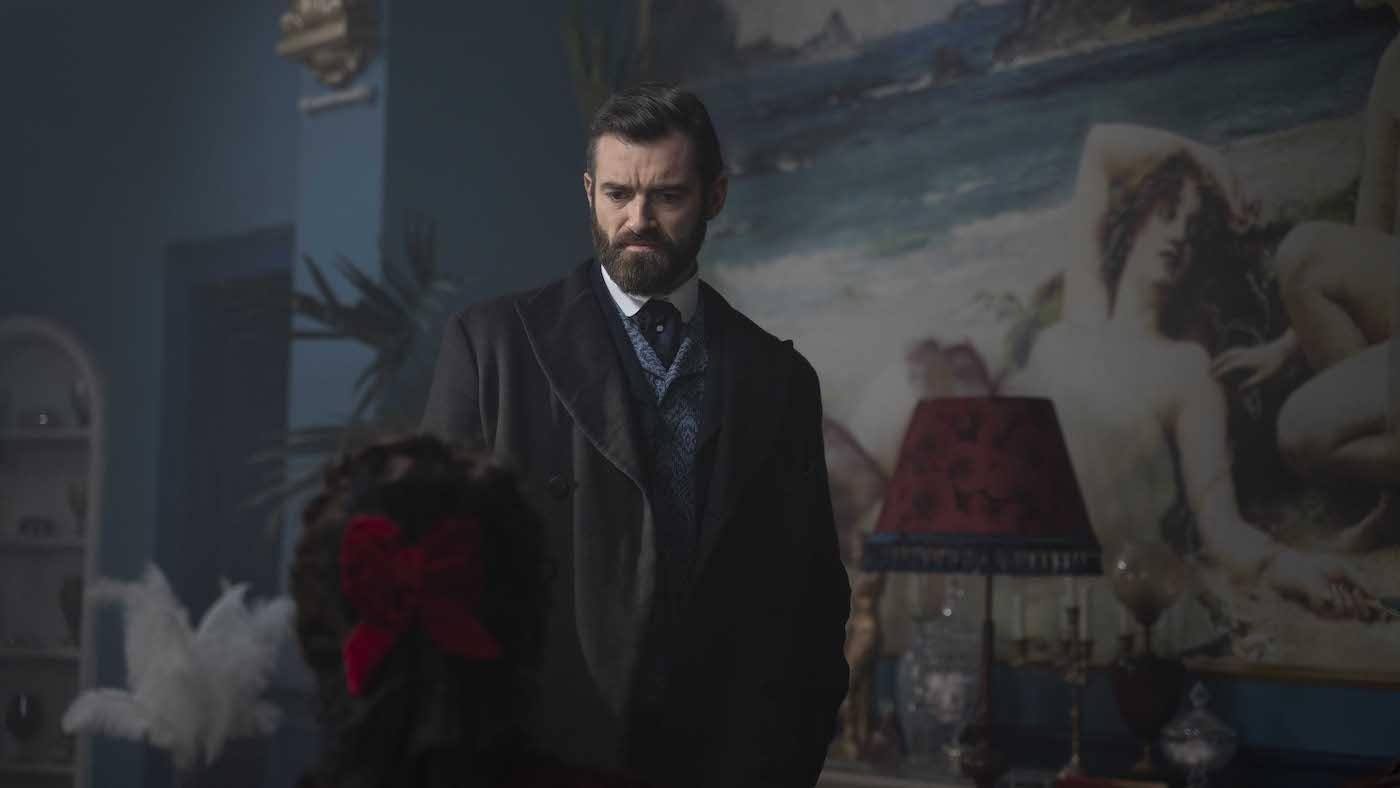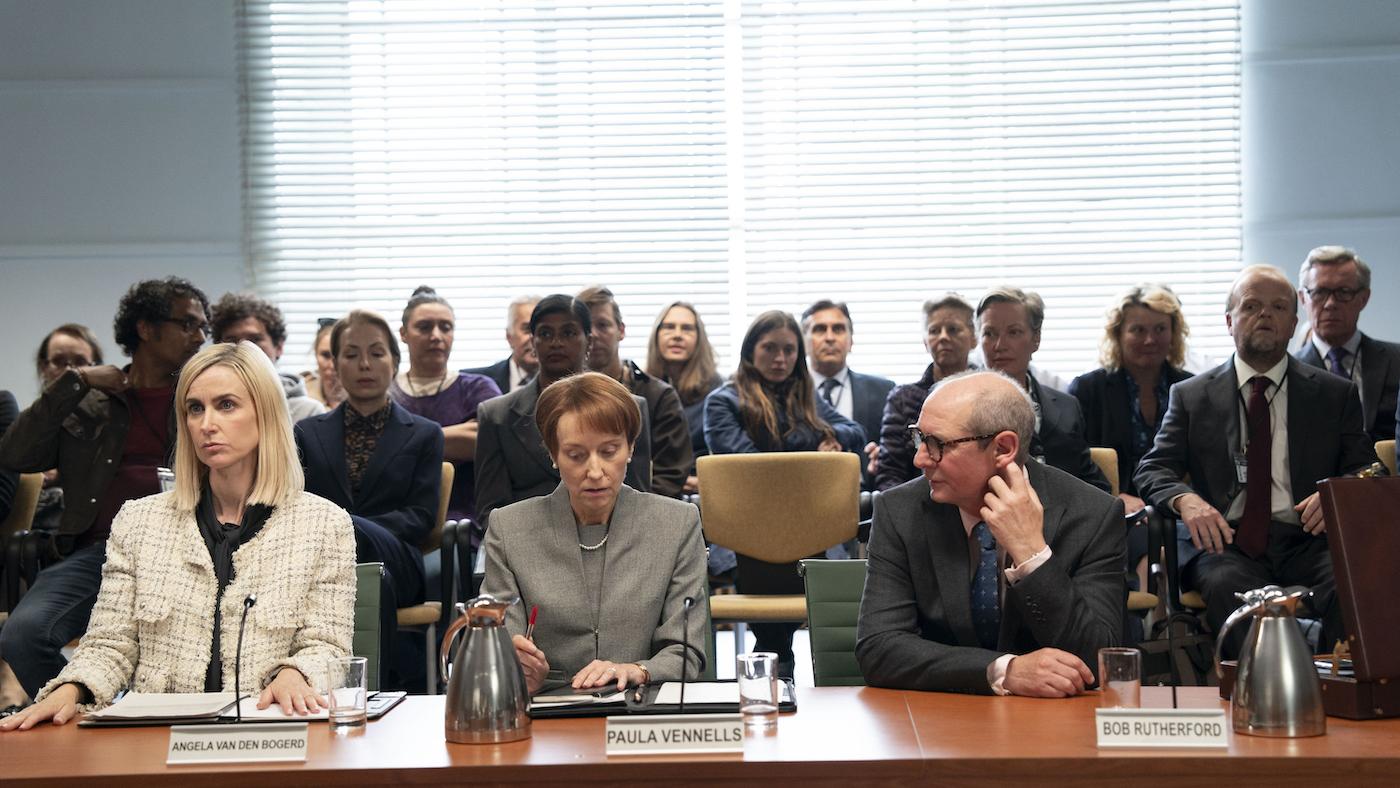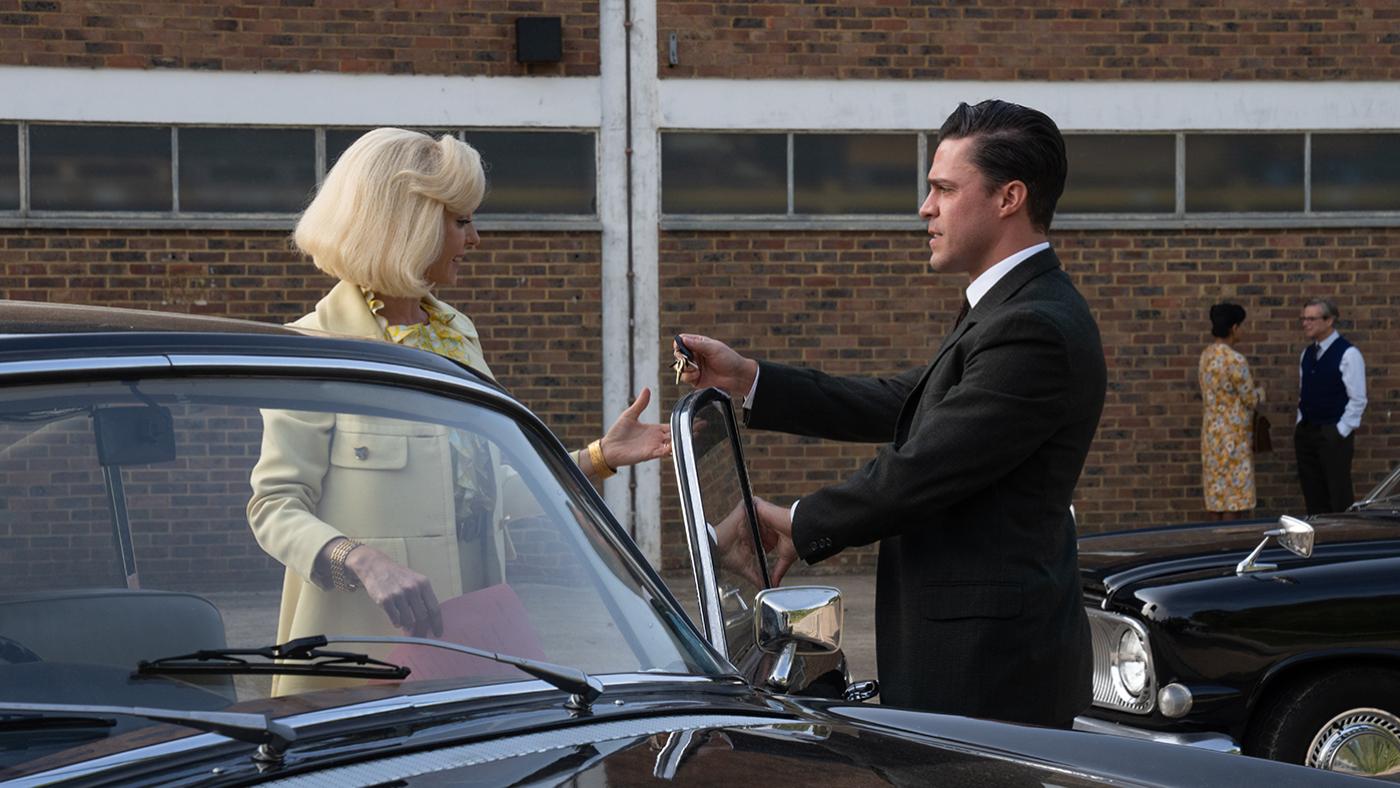'Miss Scarlet and the Duke' Recap: Season 4 Episode 1
Daniel Hautzinger
January 7, 2024

Miss Scarlet and the Duke airs Sundays at 7:00 pm on WTTW and is available to stream. Recap the previous and following episodes.
Keep up with your favorite dramas and mysteries by signing up for our newsletter, Dramalogue.
Eliza has taken over her rival-turned-ally Patrick Nash’s London detective office, as Nash sets up an office in Paris with the help of Moses – and she has already nearly run it into the ground. Granted, it’s not entirely her fault: sure, some of the employees left because of her demanding personality, but the exodus of the entire staff and every client also has to do with their inability to believe a woman can be a detective.
So Eliza has hired actors to give the appearance a busy office when a reporter comes to do a story on her. Nash’s accountant Clarence, the only staff member left, thinks it’s a waste of money. He believes Eliza should have kept buying newspaper advertisements rather than hiring actors – an argument borne out when the paper fails to print the story on Eliza.
William, on the other hand, is utterly overworked. The jurisdiction of Scotland Yard has been expanded, without a commensurate increase in staff, so he has had to cancel the leaves of his men. He himself hasn’t been home in days.
But when an armed robbery resulting in a shooting occurs at an “elite gentleman’s club” – aka a discreet brothel for powerful men – the commissioner demands that William focus all his attention on it. Several “men of influence,” including government ministers, were at the brothel and had identifying personal items stolen from them. William must track down the items and close the case quietly, lest people find out that these men were customers at a brothel. The ministers could make life even more difficult for the police department by further cutting budgets if that happened.
Unfortunately, no one wants to talk about the robbery out of “discretion.” The brothel’s mistress gives a barebones account. A gunman made her guard tie himself up, then robbed her clients one by one. He accidentally woke up a sleeping man, a fight ensued, and the man was shot. The guard eventually untied himself and called for help outside, but the robber was gone. The mistress cannot share the names of any of the men who were there – they have all left – not even the one who was shot, who was taken to the hospital.
Fitzroy and Phelps nevertheless manage to track down the injured man by checking nearby hospitals. He’s sedated, and did not share a name when he arrived. But Fitzroy recognizes him as a government minister. When he wakes, he tells William that he was shot in a hunting accident, just as he told his wife, and refuses to say more.
Stymied, William asks Fitzroy to go through recent criminal files to see if there could be a connection to the robber, who was described generically as average height, fair-haired, and blue-eyed; a scarf hid his face. But there’s too many files for one man. Fitzroy suggests that William could use some rest.
Eliza has finally swallowed her pride upon the advice of Ivy and approached William for some work, despite the awkwardness between them since Arabella left William. Eliza saw that he was understaffed, but he refused to give her work.
Now he turns to her, asking her and her employees – actors that she has once again hired – to go through the files. Eliza and Clarence set to it, and Eliza also enlists Ivy, who has recently become obsessed with reading detective stories. After all, case files are real-life crime stories.
Eliza manages to insult Clarence, her one remaining employee, and Ivy urges her to reconcile. Eliza reluctantly apologizes, and Clarence reveals that Nash has paid informants throughout London – including at the brothel that was robbed. Eliza meets with one, who reveals that the mistress told everyone to lie about the robber: he was actually tall and dark-haired. The rumor is that the mistress herself called in the robber.
Eliza also tries to track down the brothel’s guard; the informant says the mistress fired him after the robbery for not coming in to fight the robber after he untied himself, so he might be bitter towards the mistress. Eliza goes to Solomon’s shop but finds his nephew presiding; Solomon is in Jamaica. She buys some goods in exchange for contacting the guard.
She is then approached by her nemesis Basil Sinclaire, the journalist. He has found out that she lied about her business to his colleague, and is going to publish a story revealing that she has no clients or staff. Further bad news comes in the form of a court summons for being behind on rent.
Eliza decides to tell William that she hired actors and lied to him. He’s upset, so she shares her information about the brothel with Fitzroy instead. She asks him to share the police’s files about the case with her, in order to help the overworked William, and he agrees.
Eliza goes to visit the injured minister in the hospital and finds him sleeping. She is mistaken for a nurse and handed his old clothes to incinerate, before being kicked out. She keeps the clothes.
When she returns to her office, she finds the brothel guard waiting. He reveals that the mistress told him to lie: he never saw the robber leave the brothel. There’s no back door, but rumor has it there is a secret entrance upstairs from the neighboring building, a now abandoned actual gentleman’s club.
Eliza visits the empty club and finds a hidden door in a painting of Hades – the brothel is called Elysium, which was part of the Greek underworld over which Hades presided. It opens to the room where the minister was shot. Eliza finds a bullet hole in the floor there – and another one in the ground of the adjoining, empty building. The bullet is still in that hole.
A piece of fabric stuck to the bullet matches the trousers of the shot minister, as Eliza shows William. He has just been told by the mistress that all of the stolen possessions were mysteriously left at her door; the case is now closed. The “men of influence” at the brothel don’t want William digging more.
But he does. He and Eliza visit the minister in the hospital, and learn that he was in financial straits, so he staged a robbery. The brothel, with its discretion, was a perfect target. But he was startled when he heard the watchman cry for help outside, and the gun went off as he was fleeing through the secret door, hitting him in the leg. He returned to the brothel to fire another gunshot into the floor to make it seem as if he had been shot there, and explained everything to the mistress, who promised to help. She kept the stolen goods, then “returned” them to make the case go away. He pretended he had been sleeping and then robbed.
The minister will resign, but the mistress will remain untouched – she has too much influence. William suggests that the commissioner use the sensitivity of the case to get more money for the police from government ministers, and the commissioner is appalled.
But at least William and Eliza have resumed their relationship. He visits her for a drink, and they restart their regular dinner dates.
As for the pending article by Basil Sinclaire, Eliza learned from her informant that the journalist is a frequenter of the brothel, and Eliza has acquired an engraved pocket watch of his that was stolen. She returns it in exchange for the story being dropped, and retains its listing in the police evidence log as further protection against Sinclaire.
Ivy unearths more dirt in the files William asked Eliza to examine: Clarence, Nash’s accountant, has a criminal record for tax fraud and accounting for criminal gangs. Nash was the only person who would hire him; that’s why he is the only employee who hasn’t left Eliza. She asks him to stay, despite his record.







